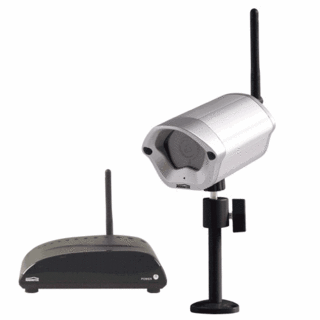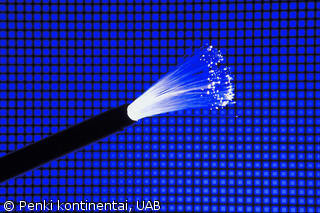NSA Chief: We Protect Cyberspace
Published:
17 October 2000 y., Tuesday
The head of the super-secret U.S. National Security Agency said on Monday that cyberspace had become as important a potential battlefield as any other and held out the prospect of attacking there as well as defending.
"Information is now a place," Air Force Lt. Gen. Michael Hayden told a major computer security conference here. "It is a place where we must ensure American security as surely as ... sea, air and space."
He cited moves to define the "legal structure into which we must fit" before offensive "information operations" -- cyberattacks -- were officially added to the arsenal that U.S. commanders can use against a foe. The NSA is the Defense Department arm that intercepts communications worldwide.
The world of information "has taken on a dimension within which we will conduct operations to ensure American security," Hayden said, adding that the NSA had not been authorized to do "that attack thing," or go on the offensive in cyberspace.
"But as the United States government begins to think about what it should or wants to do when it is under attack, it raises a really interesting question that we all have to work through in the context of our overall democracy," he said.
A year ago, Army Gen. Henry Shelton, chairman of the Joint Chiefs of Staff, disclosed that the United States tried to mount electronic attacks on Serbian computer networks during the NATO air campaign over the province of Kosovo.
Hayden said a key challenge to the NSA today was to protect U.S. telecommunications in a world where the adversaries might be "terrorists, a malicious hacker or even a non-malicious hacker."
Šaltinis:
wired.com
Copying, publishing, announcing any information from the News.lt portal without written permission of News.lt editorial office is prohibited.
The most popular articles
Software company announced new structure_ of it_s business.
more »
 Just a few weeks ago, the world's tiniest video camera was as small as a grain of rice. Today, the world's NanoEst camera is even smaller.
more »
Just a few weeks ago, the world's tiniest video camera was as small as a grain of rice. Today, the world's NanoEst camera is even smaller.
more »
 During the experiment two research groups managed to overcome a symbolic 100 TB/s optical fiber data transmission speed limit.
more »
During the experiment two research groups managed to overcome a symbolic 100 TB/s optical fiber data transmission speed limit.
more »
 Apple’s long–awaited online storage service for iTunes could be named iCloud, if only rumours are to be believed.
more »
Apple’s long–awaited online storage service for iTunes could be named iCloud, if only rumours are to be believed.
more »
 The founders of video-sharing site YouTube have bought bookmarking service Delicious from Yahoo.
more »
The founders of video-sharing site YouTube have bought bookmarking service Delicious from Yahoo.
more »
 The successful raid by hackers on Sony’s PlayStation Network is already being ranked among the biggest data thefts of all time.
more »
The successful raid by hackers on Sony’s PlayStation Network is already being ranked among the biggest data thefts of all time.
more »
 Apple has denied that its iPhones and 3G iPads have been secretly recording their owners' movements.
more »
Apple has denied that its iPhones and 3G iPads have been secretly recording their owners' movements.
more »
 Customers who have waited nearly 10 months for the white version of the iPhone 4 won’t have to wait much longer. The Great White iPhone 4 is finally here.
more »
Customers who have waited nearly 10 months for the white version of the iPhone 4 won’t have to wait much longer. The Great White iPhone 4 is finally here.
more »
 Researchers at Georgia Tech University are teaching a robot the basics of dialogue. Named "Simon", the robot has already been taught how to attract a person's attention but eventually, it's hoped he'll be able to interact and converse with humans in daily life.
more »
Researchers at Georgia Tech University are teaching a robot the basics of dialogue. Named "Simon", the robot has already been taught how to attract a person's attention but eventually, it's hoped he'll be able to interact and converse with humans in daily life.
more »
 3D? Terribly lame when it's tossed into devices as a bullet point feature. Trimensional for iPhone takes a picture of your face and maps your mug in a 3D model.
more »
3D? Terribly lame when it's tossed into devices as a bullet point feature. Trimensional for iPhone takes a picture of your face and maps your mug in a 3D model.
more »
 The European Union is to investigate whether internet service providers (ISPs) are providing fair access to online services.
more »
The European Union is to investigate whether internet service providers (ISPs) are providing fair access to online services.
more »